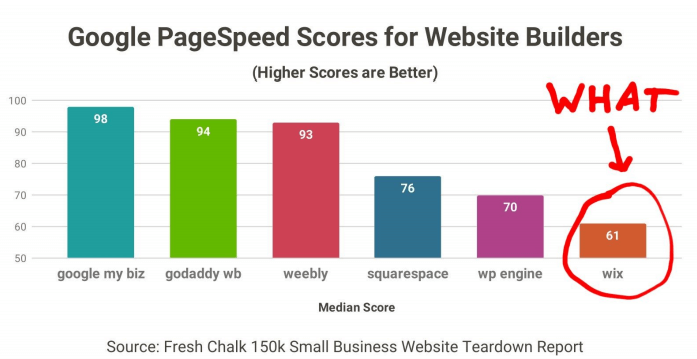Can the small business (SMB) website building platform you select affect your search rankings? An analysis of 150,000 SMB websites strongly concludes it can.
Directory site FreshChalk evaluated the top SMB site builders, including Wix, Squarespace, GoDaddy, the Google My Business site builder, WP Engine and several others. The company found connections between
Wix the biggest, not the best. Among its sample of 150,000 SMB sites, Wix had the largest market share. That was followed by GoDaddy (15.6%), Squarespace (14.4%) and Square-owned Weebly (8.5%). Google My Business’s free site builder launched in 2017 and has grown fairly rapidly. It and WP Engine each had

Google wins on Google PageSpeed. FreshChalk found that Google’s site builder had the fastest page speed among the most popular site builders, which is a ranking

The scores among the providers with smaller market share among the sites represented in this study rivaled those with greater share. Carrot matched Google My Business’s page speed score of 98. Thryv (92) and WordPress (91)each had page speed scores above 90. Shopify (83) and Hibu (81) had scores in the 80s.

WP Engine sites had

The study’s methodology is discussed in more detail in FreshChalk’s blog post.
Why we should care. If these results are accurate it obviously has significant implications for the market and could sway vendor and hosting decisions on a large scale. All other things being equal, why wouldn’t small businesses automatically choose providers that maximized their ranking potential? Those providers would also be in a position to raise prices.
Before we fully accept these findings and conclusions, others need to take a close look at this issue. The study needs to be replicated. At a minimum
